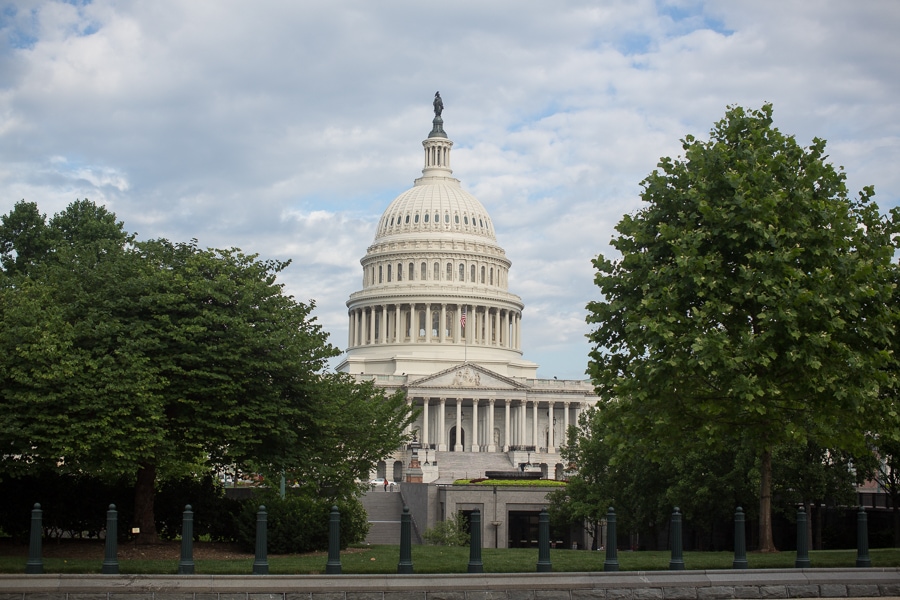/ News Posts / NAfME Federal Appropriations Update for Fiscal Year 2024
NAfME Federal Appropriations Update for Fiscal Year 2024
By Zachary Keita, NAfME Advocacy and Public Policy Communications Manager
January Update: Continuing the Continuing Resolution
Coming into the new year, Congress hoped to pass the 12 appropriations bills necessary to fund the government for Fiscal Year 2024 (FY24), before the current continuing resolution expired on January 17. In a recent letter to Congress, NAfME along with more than 1,100 organizations expressed their concern over the possibility of steep cuts to non-defense funding, highlighting the devastating impacts such funding reductions could have on non-defense programs. A significant step in the appropriations process was made when the House and Senate came to an agreement on overall funding levels for FY24. Legislators agreed to a $1.7 trillion funding package, which includes $773 billion (1% decrease) for non-defense and $886 billion (3% increase) for defense funding. After agreeing to the overall funding total for FY24, legislators were unable to come to an agreement on funding amounts for each appropriations bill, so to stave off a government shutdown, a 2nd continuing resolution was passed that extends government funding to March 1 and March 8.
Today’s date is December 12, roughly two months after the government funding deadline for the passage of Fiscal Year 2024 (FY24) appropriations bills. Currently the federal government is operating under a second continuing resolution (CR) that extends government funding for the Agriculture, Transportation, Housing and Urban Development, and Veterans Affairs bills until January 19, with the Labor-Health and Human Services (HHS)-Education bill and other remaining government funding bills expiring on February 2.
U.S. House of Representatives
In the House, progress on passing a Labor-HHS-Education appropriations bill has been stagnant for the past few months. The House majority introduced their initial proposal for the Labor-HHS-Education bill in July, which called for drastic cuts to the U.S. Department of Education (ED) budget (see chart below for more information). The bill would provide ED with $57.1 billion in discretionary funding, which is a $22.5 billion (28%) decrease below FY 2023 funding and would be the lowest allocation for ED since FY 2008. If enacted, this bill would require a significant reduction in funds or the complete elimination of several key ED programs. Such a steep cut to ED’s budget was a non-starter for many Appropriations Committee members from both parties, and the bill was sent directly to the full House for consideration without a committee vote. In November, the Labor-HHS-Education bill was brought to the House floor to debate amendments and consider passage, but ultimately, legislators decided to pull the bill from consideration before a final vote. The CR for the Labor-HHS-Education bill is set to expire on February 2, and currently there is no date set for Congress to consider passage of this bill.
| Program | FY 24 Funding (Proposed by House Majority) |
| Title I |
$3.7 billion– $14.7 billion (80%) decrease below FY23 funding
|
| Title II | Completely Eliminated |
| Title IV-A |
$1.35 billion – Level Funding compared to FY23 funding
|
| IDEA | $14.369 billion– $175 million increase (1.2%) over FY 23 funding |
| Arts in Education | Completely Eliminated |
| Nita M. Lowey 21st Century Community Learning Centers | $1.33 billion– Level funding compared to FY 23 |
Senate
Like the House, movement on the Labor-HHS-Education bill in the Senate has been stagnant since July. Unlike the House, the Senate Labor-H bill received bipartisan support and was approved in committee before being introduced to the full chamber. The Senate Labor-HHS-Education bill would provide ED with $79.38 billion in discretionary funding for FY24, which would be a $147 million (.2%) increase over last year’s funding. While the proposed increase may seem small for ED’s overall budget, the bill would insulate key ED program from funding cuts, while staying in line with provisions of Congress’s debt ceiling agreement. Specifically, the Senate proposes to fund key ED programs at the following levels:
| Program | FY 24 Funding (Approved by Senate Appropriations Committee) |
| Title I |
$18.56 billion– $175 million (1%) increase over FY23 funding
|
| Title II | $2.19 billion– Level funding compared to FY23 funding |
| Title IV-A |
$1.4 billion – $20 million (1.4%) increase over FY23 funding
|
| IDEA | $14.369 billion– $175 million increase (1.2%) over FY 23 funding |
| Arts in Education | $30 million- $6 million reduction below FY 23 funding |
| Nita M. Lowey 21st Century Community Learning Centers | $1.33 billion– Level funding compared to FY 23 |
Advocacy
Continuing resolutions provide Congress more time to reach an agreement on government funding bills, and they provide advocates with more time to champion their issues and seek increased funding for relevant programs. NAfME, along with state music education associations and partner organizations have taken full advantage of this opportunity to continue raising awareness around the importance of music education.
On November 15, the National Association of Music Merchants (NAMM) hosted its Capitol Hill Fly-In event during which 84 NAMM members held 147 meetings with members of Congress. As part of NAfME’s continued advocacy on federal appropriations, NAfME President Scott R. Sheehan and Assistant Executive Director of Advocacy and Public Policy Amanda Karhuse participated in NAMM’s fly-in event to share our collective federal priorities and advocate on the importance of access to music education for all students. Visit NAfME’s federal funding campaign for more information on how you can take action to support these key education programs: bit.ly/SupportMusicEdFY24.
Did this blog spur new ideas for your music program? Share them on Amplify! Interested in reprinting this article? Please review the reprint guidelines.
Published Date
December 12, 2023
Category
- Advocacy
- Federal Advocacy & Public Policy
Copyright
December 12, 2023. © National Association for Music Education (NAfME.org)





